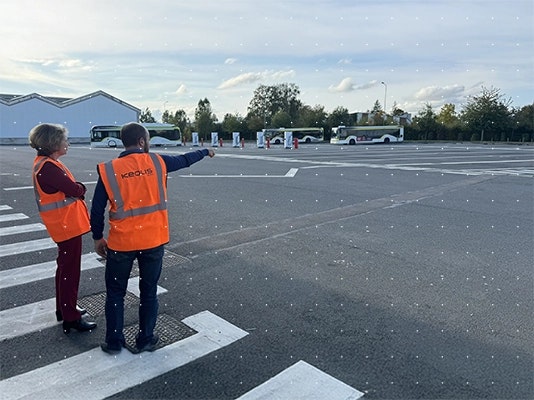At the annual cultural festival ‘Les Rendez-vous de l'Histoire’, held in Blois from 9 to 13 October 2024, Marie-Ange Debon spoke at a round table entitled ‘Cities, laboratories of mobility’. The discussion, in which Raphaël Poli, Chairman of SNCF Retail & Connexions, Christophe Degruelle, Chairman of the Blois Agglopolys conurbation, and Frédéric Héran, transport economist and urban planner at the University of Lille, also took part, highlighted crucial issues for the future of urban mobility.
Multimodality : essential coordination
Marie-Ange Debon emphasised the importance of multimodality in the public transport landscape. In her view, effective integration of different modes of transport, such as bikes, buses, trams and metros, is essential. Better coordination not only optimises journeys, but also improves accessibility within a given area. This approach promotes a fluid and simplified travel experience for passengers.
Ecological transition : a necessary commitment
Marie-Ange Debon also stressed the central role of public transport in the ecological transition. She stated that to reduce the carbon footprint of cities, it is imperative to adopt alternative and sustainable energy solutions. This implies a modal shift towards more environmentally-friendly modes of transport, reducing dependence on polluting individual vehicles.
Mobility laboratories: innovations in progress
According to Marie-Ange Debon, cities should be seen as mobility laboratories. They provide a testing ground for innovative, more inclusive and connected transport solutions. By testing new technologies and integrating intelligent transport systems, municipalities can better meet the growing needs of their residents.
This presentation highlighted the importance of collaboration and innovation in rethinking urban mobility. By integrating sustainable urban mobility strategies, public and private players can work together to build a future that is more respectful of the environment, while meeting the needs of citizens.
